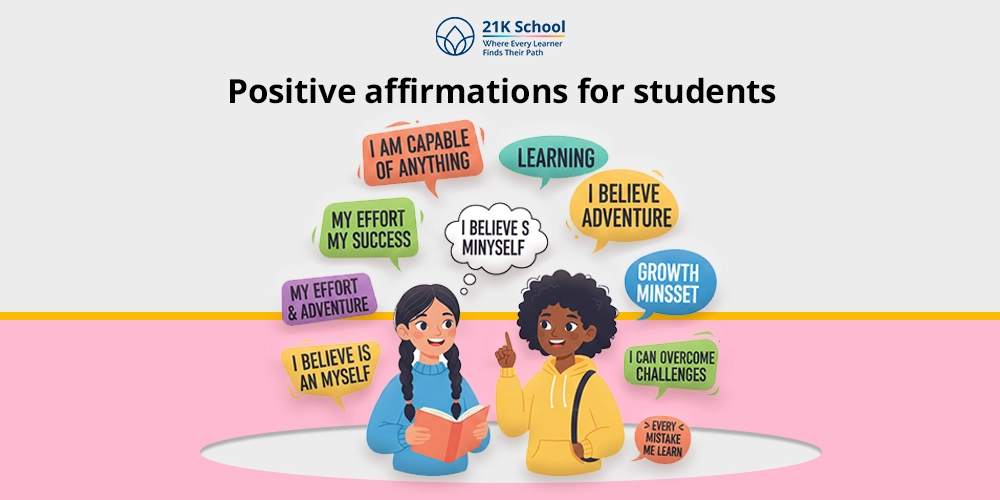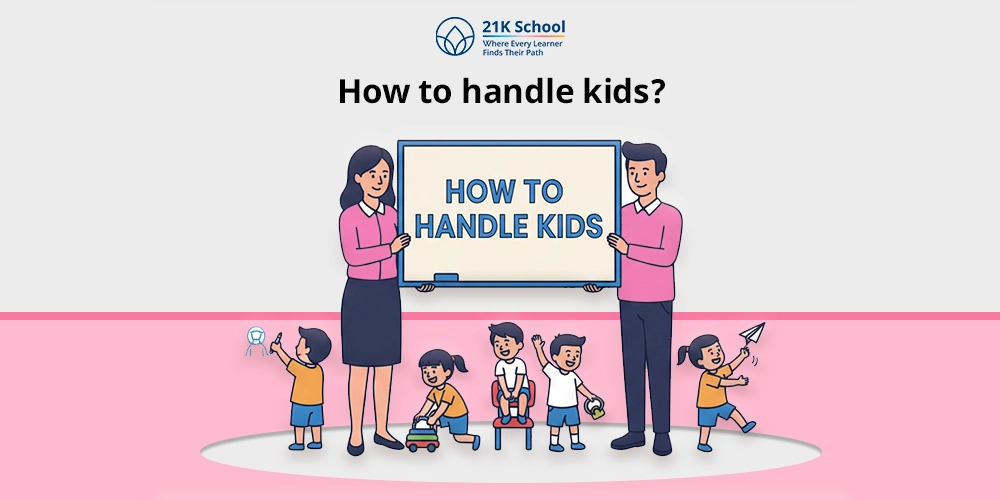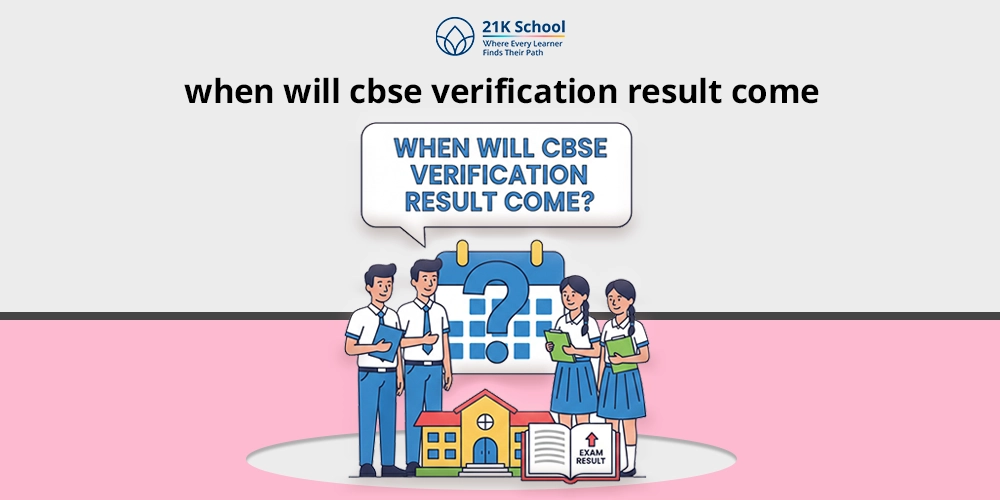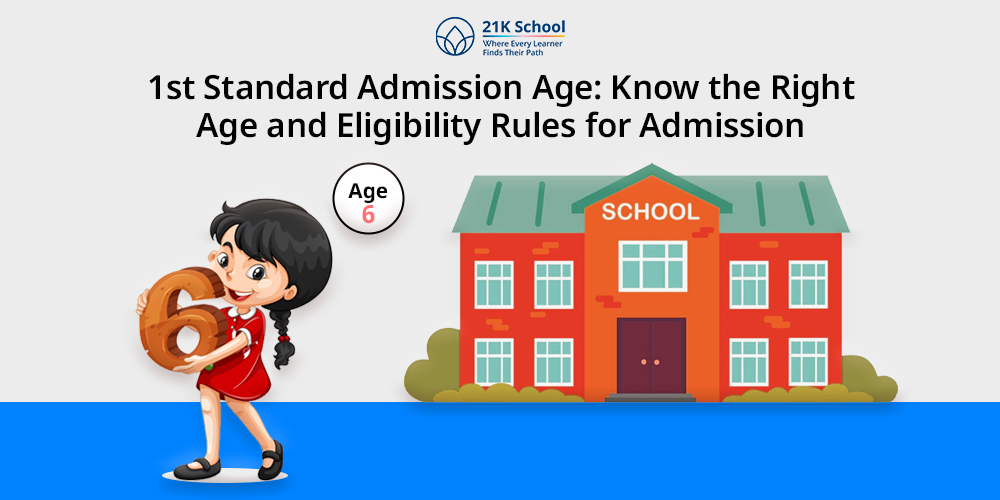
Are you thinking of your child’s admission but doesn’t know which is the best age for their admission?
Normally, children are ready for admission into 1st standard within the age of 5 to 6 years. The minimum age for the admission of children’s in the 1st standard is 6 years for most CBSE, ICSE and state-aided schools .
The government of India recommends that children be admitted in 1st standard if they are 6 years old as of March 31st. However, the admission age for 1st class changes according to schools as well.
It is necessary for parents to always admit their kids at the right time to avoid any delay in the academic performance. Age 6 is considered as the best age for admission because it allows children to develop physically and intellectually.
At the age of 6 years children are better able to develop cognitive learning as well as develop fine and gross motor skills .
Fine motor skills and gross motor skills are important for the process of reading and writing.
Contents
What is the Right Age for the 1st Standard?
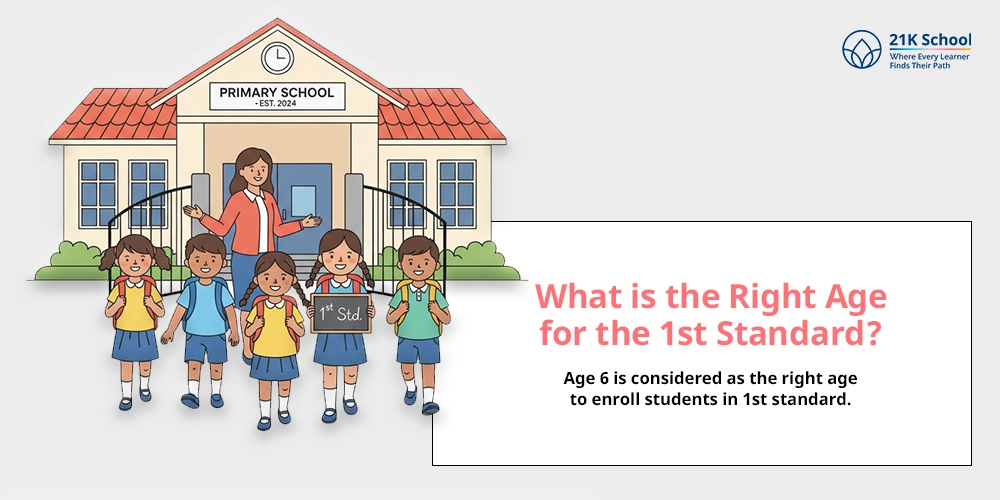
Age 6 is considered as the right age to enroll students in 1st standard. Enrolling children before the right age may hamper children’s ability to develop physically and mentally.
Almost all educational systems of the world consider this the suitable age for formal education to start. As per the National Education Policy (NEP) 2020 in India, it is recommended that the child must be 6 years old by March 31st of the academic year for getting admission to 1st Standard.
As the new NEP suggests the three years in preschool and two years in class 1st and 2nd as their foundational learning. It is also essential for parents to consider the child’s emotional, social and cognitive development to understand if the child is ready for 1st Standard or not.
CBSE 1st Standard Age Guidelines
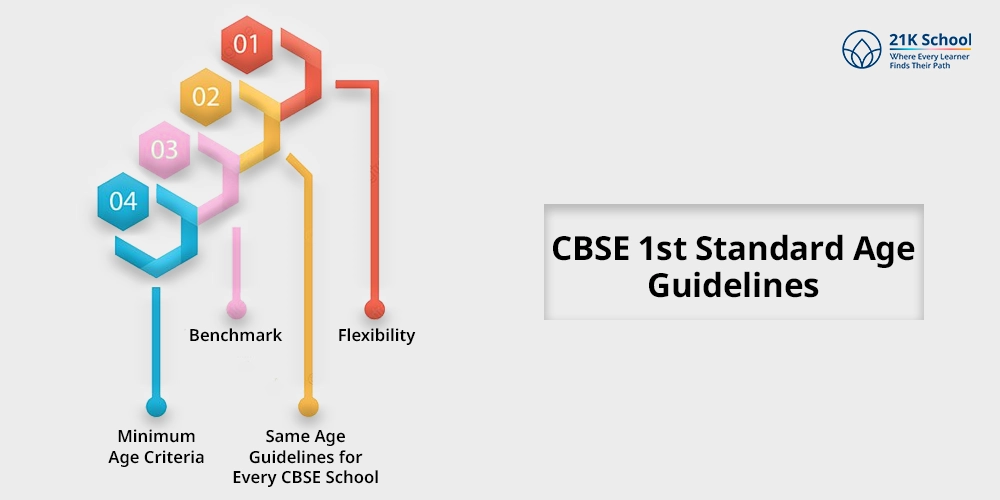
The CBSE 1st Standard age guidelines state the limitations and benchmark for the admission of children into 1st standard. CBSE age guidelines are followed by most of the CBSE-affiliated schools or schools that follow the CBSE curriculum .
However, every school has some different age criteria, but the most common admission age is 6 to 7 years. Here you can check the CBSE 1st class age guidelines.
- Minimum Age Criteria: As per the CBSE 1st Standard age guidelines the minimum age for a child to be enrolled in 1st class must be between 5.5 to 6.5 years. However, some children can also take admission at 7 years of age.
- Benchmark: As per the CBSE age limit, children must have completed their 6 years by March 31st of the academic year. This can be understood as children can be enrolled if they are in the age group of 5 to 6 and 6 to7.
- Same Age Guidelines for Every CBSE School: CBSE Age guidelines should be followed in every CBSE affiliated school. According to which there is a fixed age limit that students should be admitted between the ages of 6 to 7. No children are applicable to get admission into CBSE schools after the age limit.
- Flexibility: CBSE schools offers flexiblity in some cases according to which students can get flexibility in terms of their age limit. Children who are mid-year transfered students or are from EWS or PwD backgrounds.
1st Standard Admission Age: Why It’s Crucial?
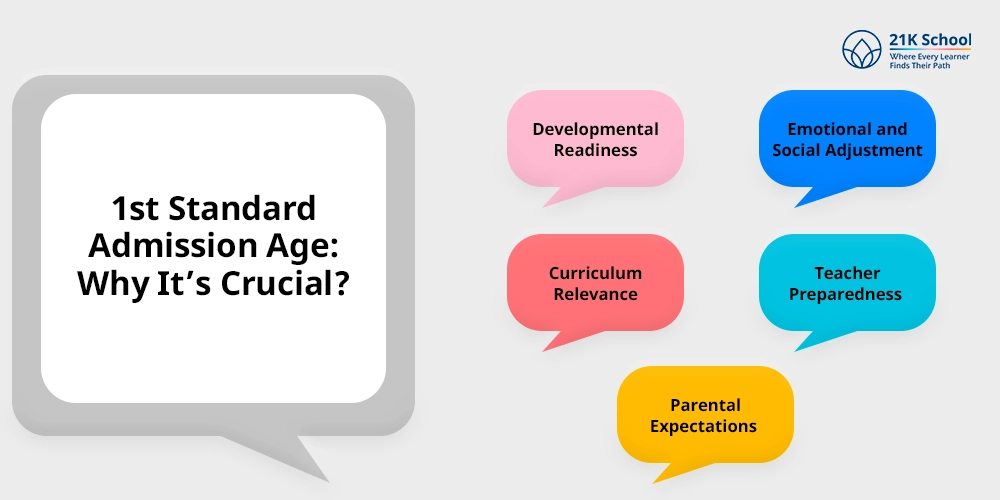
The age of admission to class 1st is crucial in creating a child’s overall academic, emotional and social development. Every child has their own learning pace and understanding level.
The right age for children to get enrolled in the 1st standard is considered between 6 to 7 years.
This is because children are mentally, emotionally and somewhat even physically evolved and mature enough to understand, learn and retain things in a structured environment.
1. Developmental Readiness
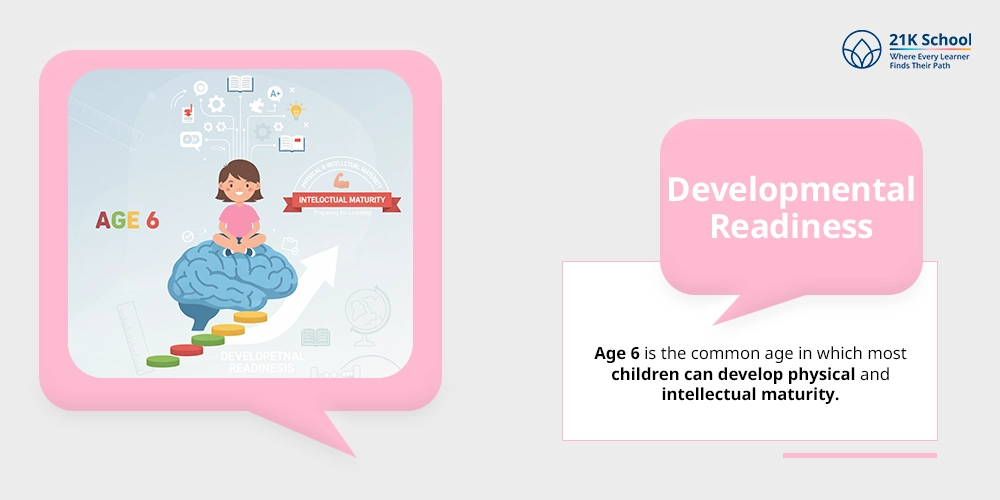
Age 6 is the common age in which most children can develop physical and intellectual maturity. Most children in this age develop readiness, which means they can form sentences and understand information more accurately.
By this age children are able to do simple tasks on their own as well as stay in classes for a longer period of time.
2. Emotional and Social Adjustment
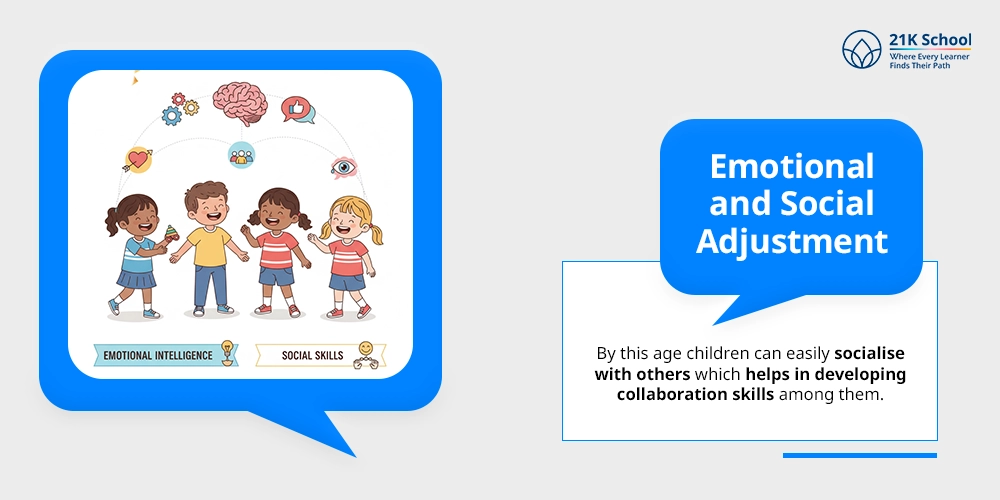
By age 6, most of the children develop their emotional intelligence as well as adjust socially. By this age children can easily socialise with others which helps in developing collaboration skills among them.
This age also allows them to develop a sense of cooperation, which also helps in developing empathy among them.
3. Curriculum Relevance
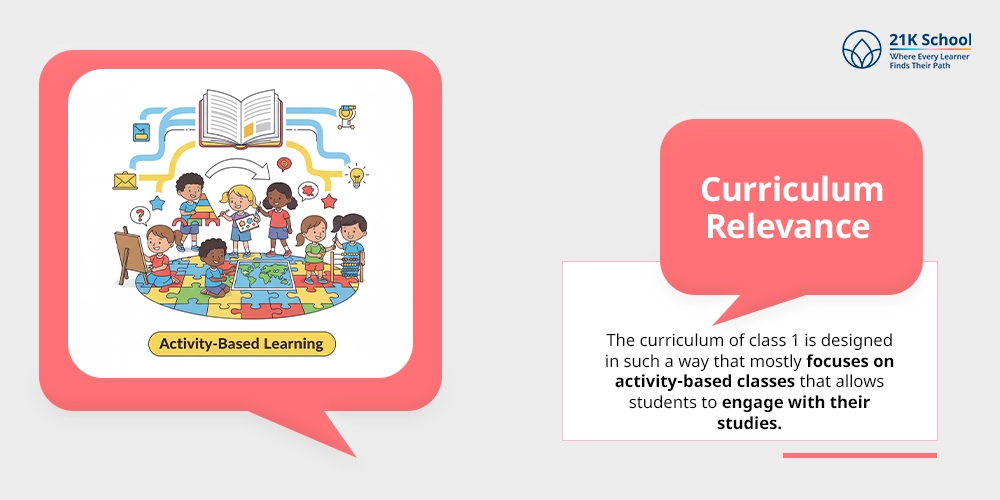
The curriculum of class 1 is designed in such a way that mostly focuses on activity-based classes that allows students to engage with their studies.
A proper curriculum that aligns with the age of the students ensures that students with younger and older age find the curriculum same to achieve their goal.
4. Teacher Preparedness
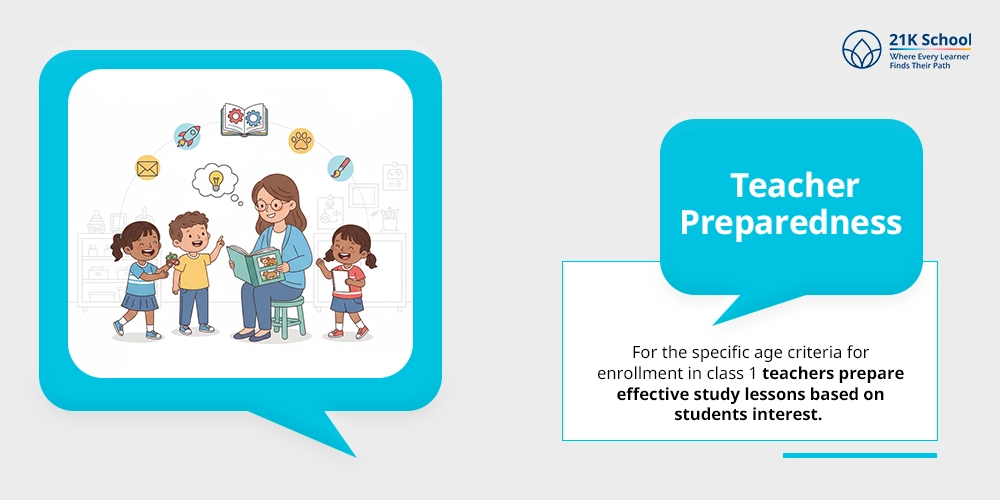
For the specific age criteria for enrollment in class 1 teachers prepare effective study lessons based on students interest.
Even through a proper age limit teachers can understand the learning method of students through which teachers can tailor their teaching method. Effective teacher preparedness allows children to understand the class lessons more effectively.
5. Parental Expectations
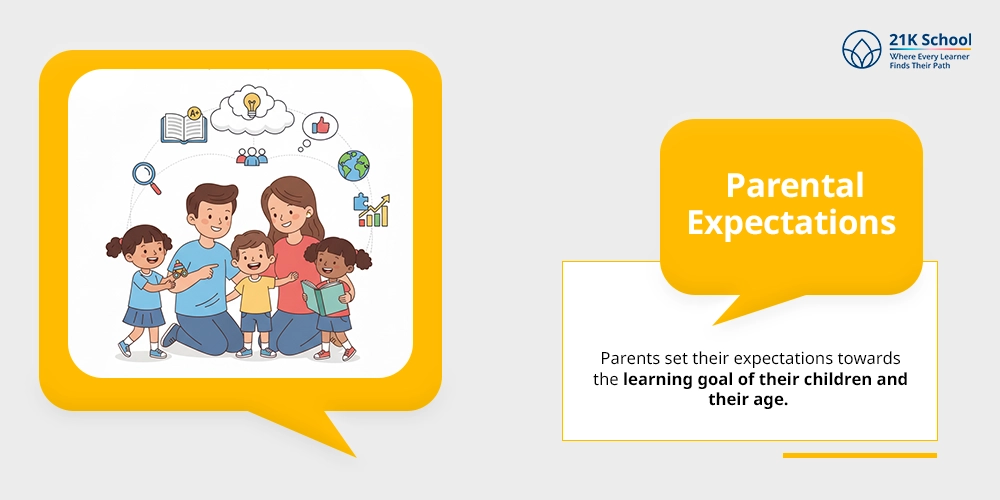
Parents play an important role in providing support to their kids. Parents set their expectations towards the learning goal of their children and their age.
Through proper age criteria of students parents and teachers can set educational expectations. This also helps in making parent-child relationships stronger.
Benefits of Admission into 1st Standard at the Right Age
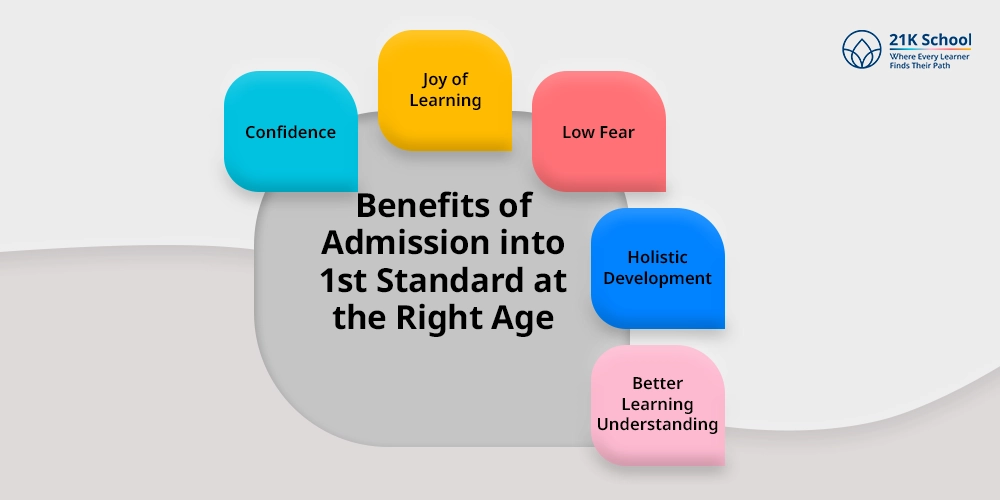
A perfect age for 1st class admission is very important for effective education. At perfect age childrens mental health and effective communication skills were becoming active. Most children are ready to do admission when they achieve a minimum age of 6 years.
Taking admission at the right time helps in avoiding educational delays and prepares students for holistic education . Here are the benefits of admission into 1st standard at the right age.
1. Confidence
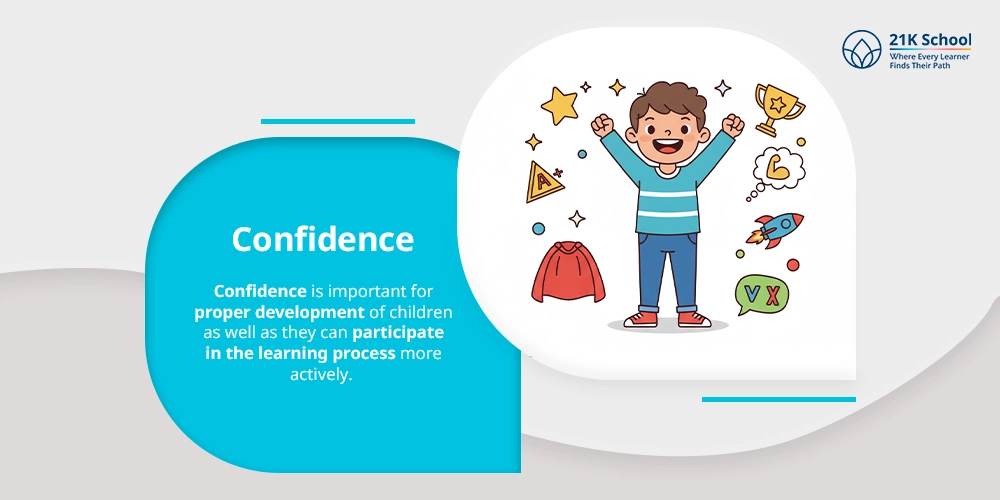
Admission at an appropriate age such as 6 allows children to develop self esteem which is known for enhancing confidence among them.
Confidence is important for proper development of children as well as they can participate in the learning process more actively. Positive confidence in children allows them to actively participate in the teaching and learning process.
2. Joy of Learning
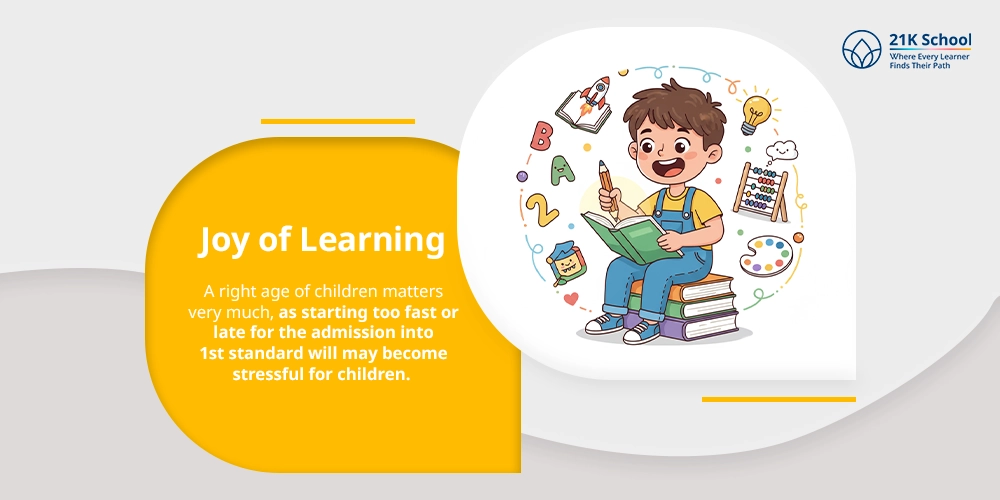
A right age of children matters very much, as starting too fast or late for the admission into 1st standard will may become stressful for children.
At the right age children develop love towards learning which will make a positive impact on their school experience. This increases their joy of learning and enables students to actively indulge in class activities with study stress .
3. Low Fear
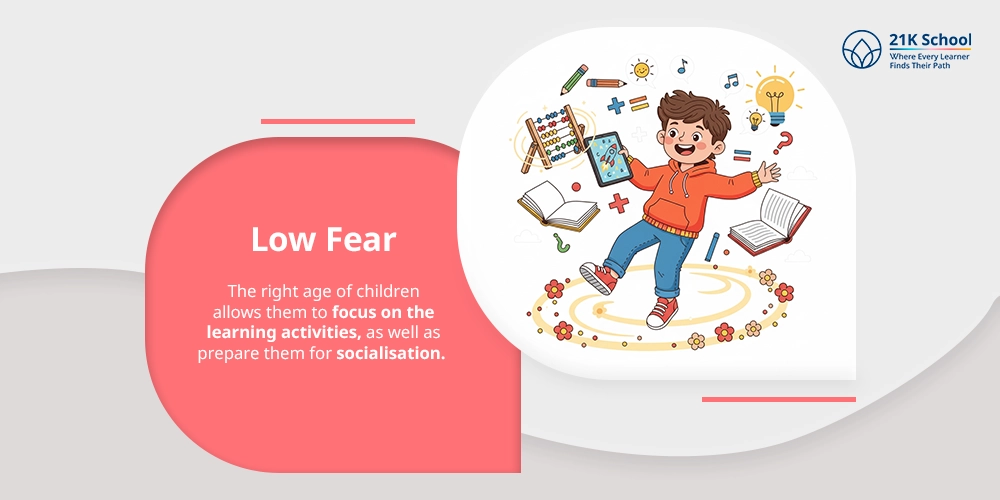
The right age of children allows them to focus on the learning activities, as well as prepare them for socialisation.
Starting admission too early may cause social anxiety and stress among children, causing them to fear school. A right age for 1st Standard admission will cause low fear and social anxiety among children.
4. Holistic Development
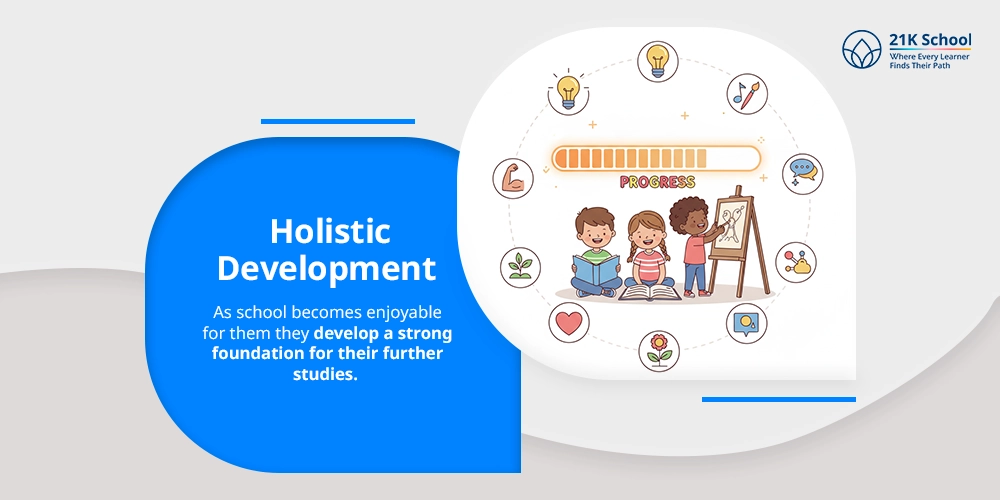
A right age for the admission is crucial for holistic development of children. As school becomes enjoyable for them they develop a strong foundation for their further studies.
This also provides them with a holistic education enabling them to acquire necessary skills. Starting too early may only hamper their critical thinking skills and holistic development.
5. Better Learning Understanding
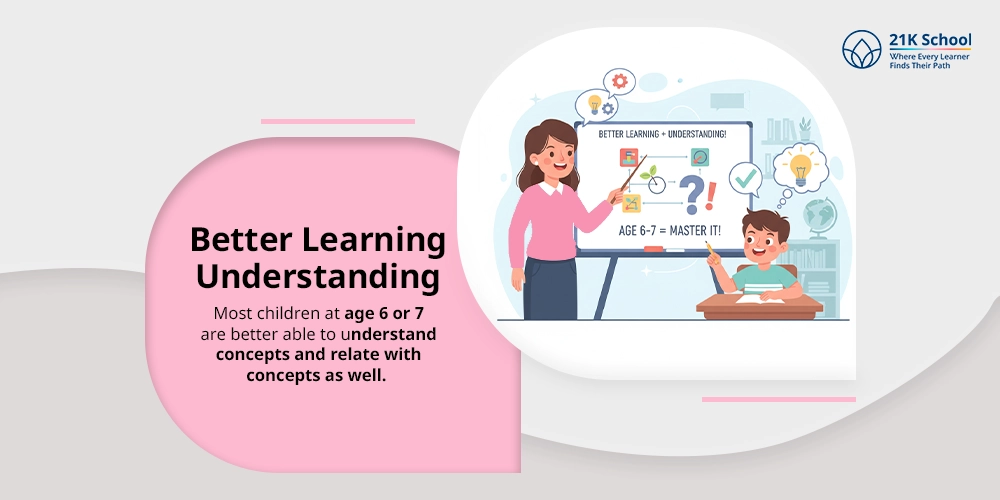
At the right age children learn to understand information in a better way. Most children at age 6 or 7 are better able to understand concepts and relate with concepts as well.
This allows them to study in schools and understand what is being taught by teachers. Through this, children can comprehend any lessons in a positive manner.
Signs to Understand the Right Age for 1st Standard Admission
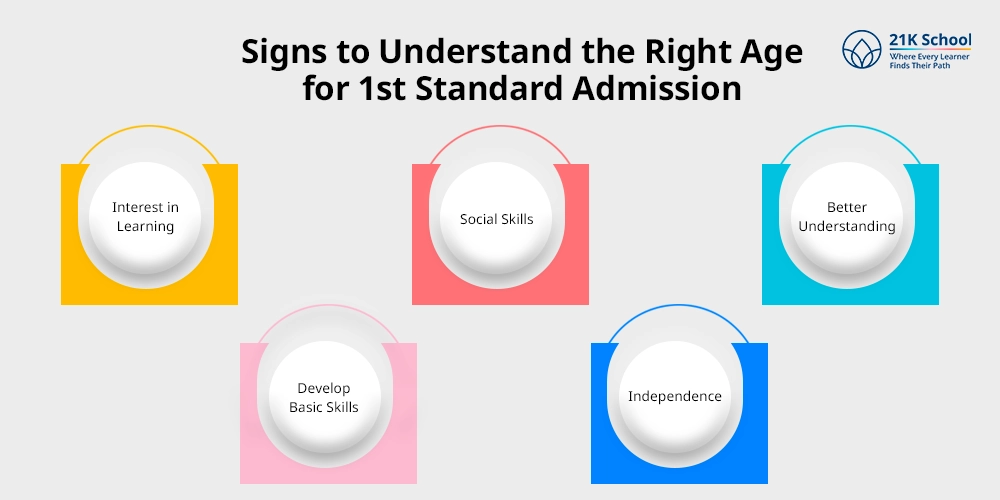
Parents can easily understand whether their kid is ready for admission into 1st standard or not. Understanding these signs are crucial to understand whether the kids have developed interest towards learning or not.
A perfect age makes sure the children are mentally and physically evolved to participate in the learning process. Here are the signs for the right age of admission into 1st class.
1. Interest in Learning
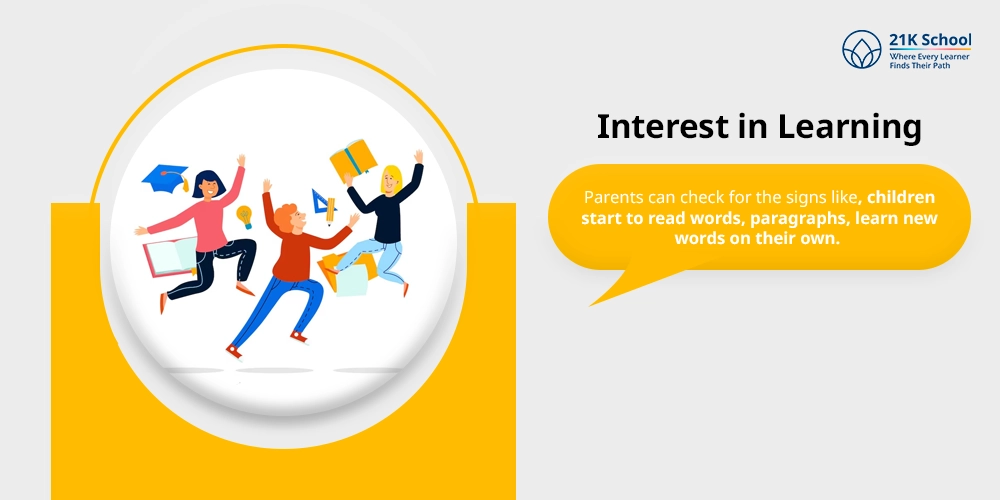
Most children by age 6 or 7 develop interest towards learning. However, it is also noted that some children develop interest early or late.
Parents can check for the signs like, children start to read words, paragraphs, learn new words on their own. This showcases that they want to explore their interests and love towards learning.
2. Social Skills
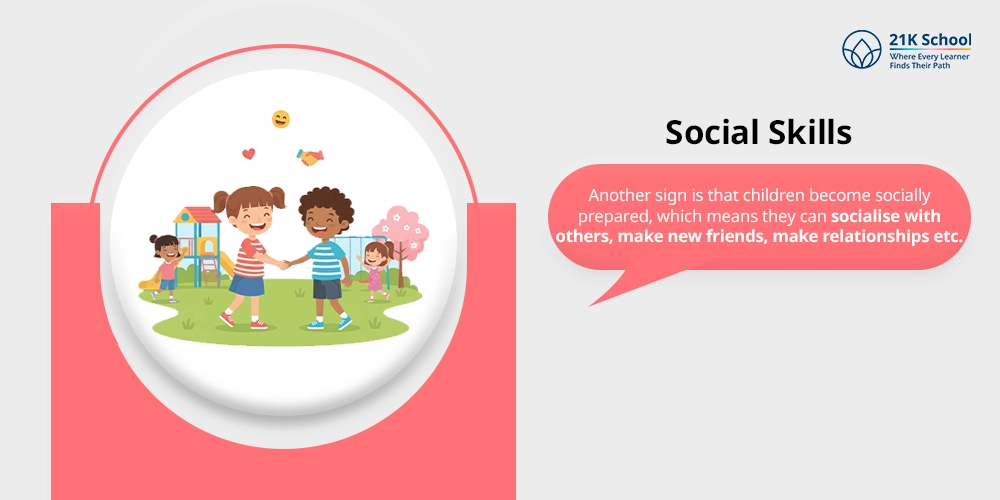
Another sign is that children become socially prepared, which means they can socialise with others, make new friends, make relationships etc., without any fear or anxiety.
By understanding their social skills it becomes easy to understand that children are ready for the admission into 1st class.
3. Better Understanding
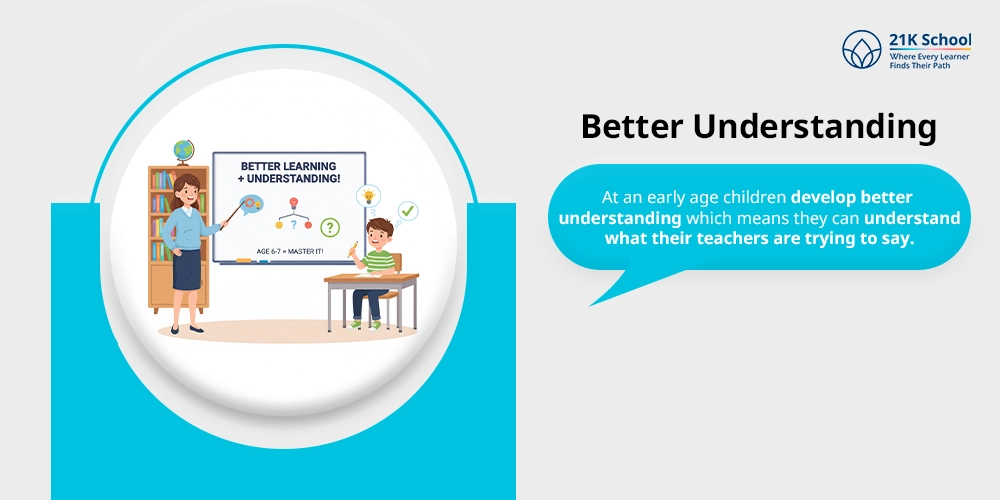
At an early age children develop better understanding which means they can understand what their teachers are trying to say.
At the right age children develop love towards learning and they start reading and writing through which it can be understood as kids are prepared for their school experience.
4. Develop Basic Skills
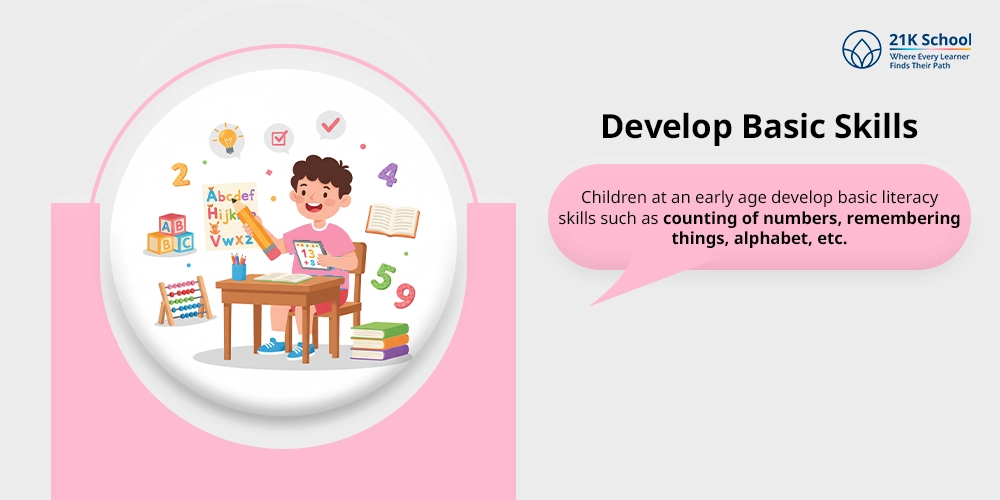
Children at an early age develop basic literacy skills such as counting of numbers, remembering things, alphabet, etc.
By understanding the basic skills of children it becomes easy for them to identify that the children are ready for the admission into 1st standard.
5. Independence
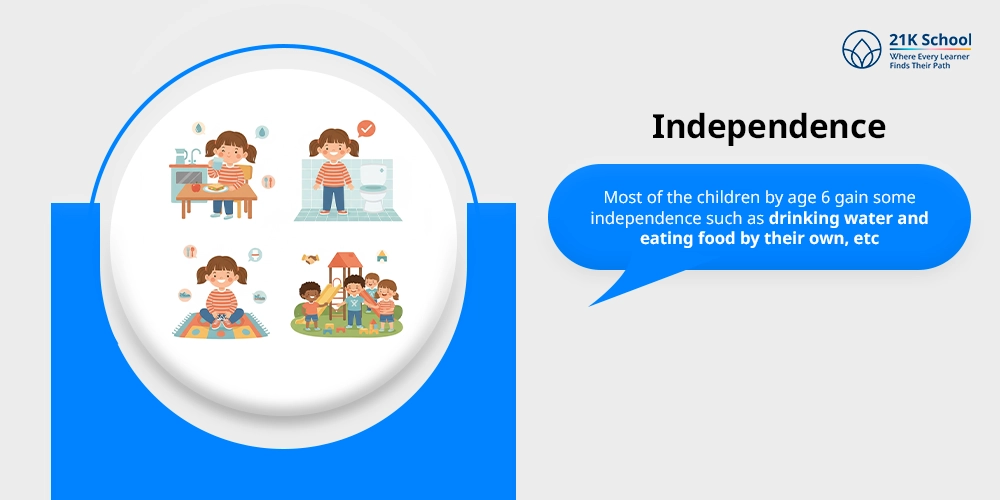
Most of the children by age 6 gain some independence such as drinking water and eating food by their own, going to washroom by their own, playing and participating in groups.
These signs allows parents to understand that their children are ready for going to school.
Ending Note
Evaluating 1st standard admission age is important to ensure a child’s utmost success in academics, emotional and social development.
NEP 2020 and most education boards in support of age limit admissions such as CBSE, suggest age 6 for enrollment.
With a right age limit for admission, a child could develop confidence, boost learning ability as they will be developmentally ready for education.
Following appropriate age limit signs such as literacy development, interactions or independence, shows to observe parents before admitting their child in 1st standard for the best educational start.

